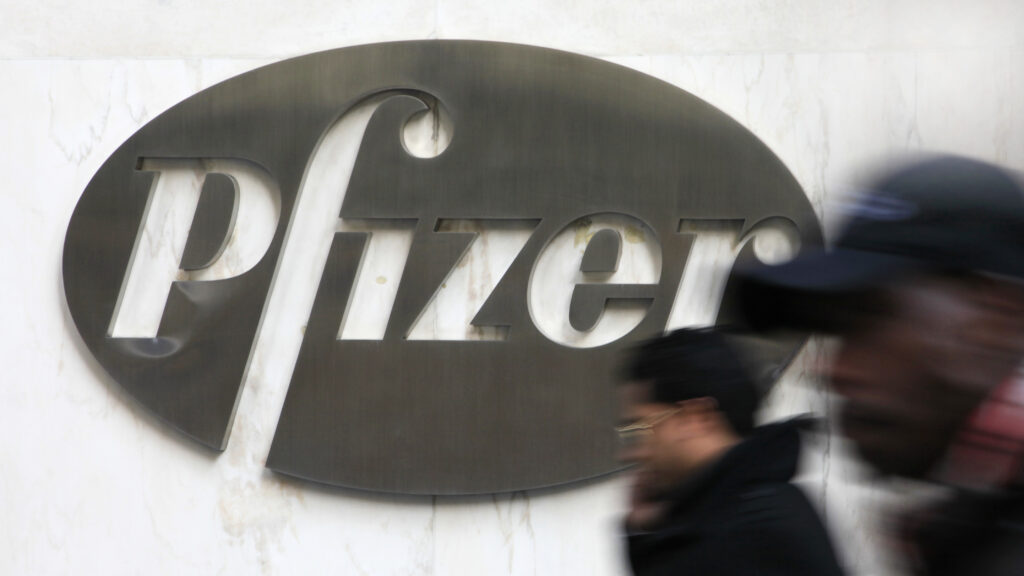This story first appeared in The Readout newsletter. Sign up for The Readout and receive STAT’s award-winning biotech news delivered straight to your inbox.
Morning. Today, we are sad to report that more children have developed blood cancers after receiving Bluebird Bio’s CALD gene therapy, Skysona. There’s a new twist in the Pfizer activist shareholder campaign. We see a clear sign that the biotech job market is rough, because fewer new doctorates are escaping academia for industry. And PBMs take aim at the FTC.
advertisement
Seven children develop cancer after receiving Bluebird gene therapy for rare neurological disease
Seven of the 67 children who received Bluebird Bio’s gene therapy Skysona have developed blood cancer, new research shows — and one patient has died from complications stemming from the cancer treatment.
In all seven cases, it seems as though the lentivirus used to ferry the therapy throughout the patients’ bodies disrupted a gene linked to cancer, STAT’s Jason Mast writes. Six patients developed myelodysplastic syndrome, an early malignancy that can progress into acute myeloid leukemia, or AML. One patient has developed AML. It’s still unclear why this particular treatment is so prone to triggering blood cancers.
But Skysona is still a critical treatment for cerebral adrenoleukodystrophy, a deadly neurodegenerative disorder, and doctors still intend to offer the treatment.
advertisement
“This disease is awful, and until we have better, I think families and patients need to have choices,” the physician who detailed these cases in the New England Journal of Medicine told STAT.
Former Pfizer execs retreat from activist campaign
It’s a notable turnaround for a pair who just on Sunday reportedly talked up Starboard’s plans with at least four Pfizer directors, including Bourla. As it pushes for change, Starboard has taken a $1 billion stake in Pfizer, which has seen its share price tank by half from its pandemic-era high. The investor has reportedly been critical of Pfizer’s management and how the company spent earnings from its Covid vaccine and antiviral on a string of acquisitions.
Fewer freshly minted Ph.D.s are bolting to industry
Young life scientists have been fleeing academia in droves over the past decade. But that trend’s slowing, STAT’s Jonathan Wosen writes exclusively: An National Science Foundation census shows that 61.6% of recent biomedical Ph.D.s were headed to industry in 2023 — down from 66.5% in 2022. For years, that figure had been increasing, so this is the first sign of a reversal. And the percentage of graduates entering academia grew from 18.8% in 2022 to 22.1% in 2023.
These numbers show how dramatic impact of the slowdown in the biotech sector has been: “When interest rates go up, companies slow down,” one labor economist told STAT. “We’re seeing that across the economy.”
PBMs want to push FTC chief off insulin lawsuit
Claiming bias, UnitedHealth Group and CVS Health have filed motions to excise FTC Chair Lina Khan and two other Democratic commissioners from the agency’s insulin price lawsuit against major pharmaceutical benefit managers. This marks the latest attempt by PBMs to aggressively undermine Khan’s crackdown on the industry, STAT’s Bob Herman writes.
The groups’ attorneys claim Khan, Rebecca Kelly Slaughter, and Alvaro Bedoya “have made repeated incorrect prejudgments” and “public condemnations” that “would lead any neutral observer to believe that their minds are … irrevocably closed to contrary views of PBMs and their conduct.” A motion from Optum Rx, meanwhile, says that Khan and her coworkers have made “disparaging remarks” about PBMs that equate to “blatant bias.”
Barth drug shows why randomized trials don’t work in ultra-rare disease
Later today, an FDA advisory committee will review a Barth syndrome treatment made by Stealth BioTherapeutics. The ultra-rare genetic disorder affects just about 200 boys worldwide, causing severe heart and muscle issues. Stealth’s drug, elamipretide hydrochloride, aims to bolster mitochondria function — and though a small randomized trial involving 12 patients did not show notable results, long-term data show improvements in muscle strength, heart function, and endurance during a six-minute walk test.
Ultragenyx CEO Emil Kakkis opines that “there is no way this trial could have succeeded.” The size of the study — and the patient population itself — is simply too small, he says, so the FDA advisers should seriously consider the long-term follow-up data.
“In ultra-rare diseases without an adequate, approved, and available therapy, a ‘totality of evidence’ approach needs to be taken,” he writes.
A crack of light for Pfizer
From STAT’s Matthew Herper: In other Pfizer news, the company said this morning that the combination of its drugs Talzenna and Xtandi extended survival in men with metastatic castration-resistant prostate cancer compared to Xtandi alone.
The effect held true both in the limited group in which Talzenna is approved — patients whose cancer has gene mutations that lead to issues with homologous recombination repair (HRR) — and in an “all comers” group that included tumors that don’t test positive for HRR.
The new data could lead to a broader approval for Talzenna. Currently, Pfizer markets the drug for the treatment of prostate cancer only for patients whose tumors have HRR mutations. Pfizer did not provide more detail on the new data.
The more limited approval by the FDA in 2023 was viewed as a disappointment at the time, and Pfizer listed it as one reason for lowering its earnings expectations later that year. Right now, Talzenna, a type of drug called a PARP inhibitor, is not a big seller, with sales of only $32 million in the second quarter of 2024. Pfizer acquired the medicine, originally developed by BioMarin, when it bought Medivation for $14 billion in 2016.
More reads
- Medicare already covers GLP-1s for half of seniors with obesity, new report finds, STAT
- Illumina launches compact, low-cost gene sequencing devices, Reuters
- ‘Just the beginning’: Nobel Prizes show the AI era has arrived in biotech, Endpoints
- Boehringer unveils $607 million deal to land Circle’s preclinical cancer program, FierceBiotech

